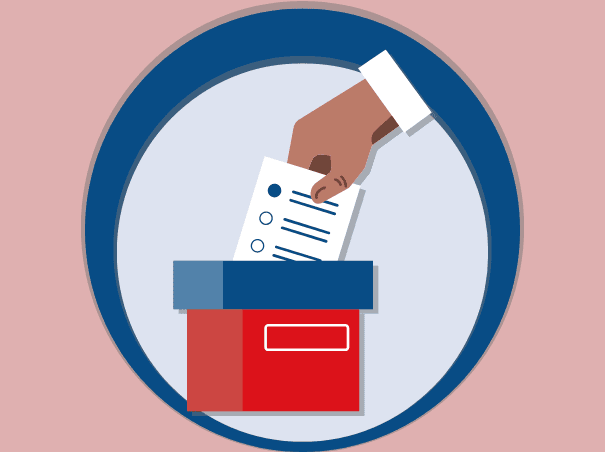
The election is tomorrow, and many employees wonder if they are entitled to time off for voting. Employers across the U.S. should be aware of both federal guidance and individual state laws governing this topic. Although federal law doesn’t mandate paid voting leave, many states have their own specific regulations in place. Here’s what employers need to know about time off for voting in the U.S.
1. No Federal Law Requirement for Voting Leave
There is currently no federal law requiring private employers to provide time off for voting. However, certain state laws may require time off under specified conditions, and it’s essential for employers to be aware of these requirements to remain compliant.
2. State-by-State Regulations
In the U.S., time off for voting is generally regulated by state laws, and requirements vary widely. Some states mandate paid time off, while others may only require unpaid leave. Employers should consult their Guardian HR Manager or their state voting website, as these regulations often differ in terms of:
- Paid vs. Unpaid Time: States like California, New York, and Illinois require paid time off for voting if an employee’s schedule doesn’t provide enough time to vote outside of working hours.
- Duration of Leave: Many states specify the amount of time an employee can take for voting, often ranging from one to three hours.
- Advance Notice: Some states require employees to notify employers in advance if they plan to take time off to vote.
- Proof of Voting: A few states may allow employers to request proof that an employee voted to prevent misuse of voting leave policies.
3. Common State Examples of Voting Leave Policies
To give an idea of the variations across the country, here’s a quick look at some states’ voting leave laws:
- California: Employers are required to provide two hours of paid time off if employees don’t have sufficient time outside of work hours to vote.
- New York: Employers must allow up to two hours of paid leave, but employees must notify employers at least two working days before Election Day if they need time off.
- Texas: Employers must provide paid time off unless the employee has two consecutive hours outside of work hours to vote.
- Georgia: Provides up to two hours of unpaid leave if voting cannot be completed outside of regular working hours.
Each state’s requirements are unique, so it’s crucial for employers to check local laws to determine their obligations or consult with your Guardian HR Manager.
4. Best Practices for Employers
To help manage voting leave effectively and ensure compliance, employers can consider adopting the following best practices:
- Create a Clear Voting Leave Policy: Outline the amount of time off allowed, whether it’s paid or unpaid, and specify any requirements like advance notice.
- Communicate with Employees: Inform employees of their right to time off for voting, particularly if your company operates in a state with voting leave laws.
- Accommodate Flexibility: If possible, consider options like flexible schedules on Election Day or allowing employees to make up missed time if voting leave is unpaid.
- Stay Updated on Legal Changes: Voting leave laws can vary by election cycle, so employers should regularly review state regulations to stay compliant.
5. Implications for Non-Compliance
Failure to comply with state-specific voting leave laws can lead to fines and penalties for employers. Employees who are prevented from voting due to lack of leave could also file grievances, resulting in reputational and operational challenges for employers.
In Summary
While federal law doesn’t require time off for voting, many states have adopted specific rules that employers must follow. By understanding these regulations and implementing a clear voting leave policy, employers can ensure that they meet compliance requirements while supporting employees’ civic responsibilities.
If you wish to become a client of GHR and get access to all our great resources, including your own HR Manager and our team of employment attorneys, please contact us at sales@app.guardian-hr.com or call us at 888.373.4724.
